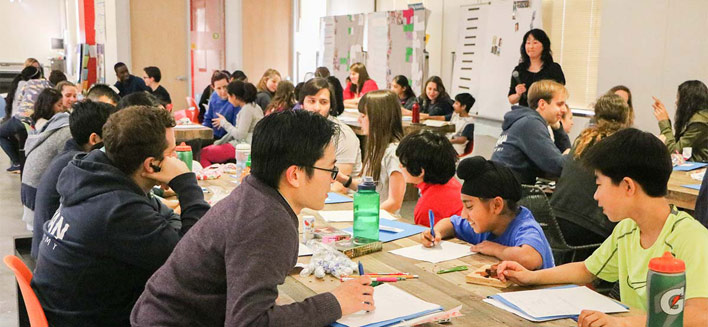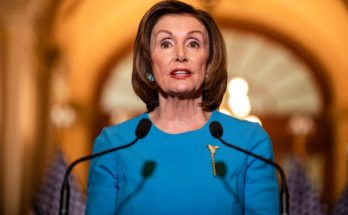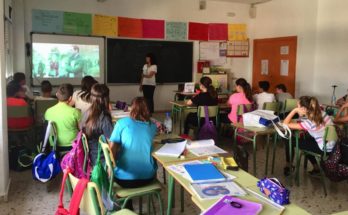At the finish of 2019, the U.S. Division of Education made an under-the-radar declaration that it was looking for remarks on another investigation of over $30 billion in government instruction spending. On the off chance that the investigation is progressed nicely, it could give significant data to analysts, backers, and policymakers about the Department’s interest in K-12 training. Be that as it may, there is additionally a genuine hazard that Secretary of Education Betsy DeVos could utilize the examination to propel her enemy of state funded training motivation by undermining support for a vigorous government interest in schools and understudies.
As indicated by the Department, the examination will inspect subsidizing under the Every Student Succeeds Act, or ESSA, and the Individuals with Disabilities Education Act (otherwise called IDEA), the fundamental government law intended to guarantee understudies with inabilities can get a quality state funded instruction. It will investigate how areas and schools utilize the cash they get from the biggest projects of these two laws: Title I, Title II, Title III, and Title IV of ESSA, and Part B of IDEA. The examination would likewise inspect how states disperse this cash, to decide if it is arriving at the expected recipients.
Investigations of government programs have a significant history in propelling instruction change endeavors. Somewhere in the range of 2006 and 2010, the Department of Education’s Policy and Program Studies Service distributed a nine-volume report on the usage of No Child Left Behind, remembering a volume for the focusing on and employments of government training reserves. Among different discoveries, the investigation indicated that government reserves were more focused to high-destitution regions than state and neighborhood reserves, but then high-neediness schools got less Title I financing per low-salary understudy than low-destitution schools.
This sort of data is actually what ought to illuminate future reauthorizations regarding ESSA, and it gives proof of the significance of expanding government financing for schools and improving the focusing of that guide. Later thorough research has demonstrated overwhelmingly that putting resources into instruction has clear advantages for understudies. However a thorough take a gander at the Title I equation found that it needs a noteworthy upgrade to accomplish its planned reason. This new examination could give more direction to administrators on the best way to reconsider subsidizing equations, increment financing deliberately and better serve understudies.
Lamentably, the proposed examination could likewise be contorted to contend for cutting subsidizing or diminishing securities for helpless understudies. The Department’s proposition incorporates inspecting whether areas and schools utilize distinctive government financing streams for comparative exercises. Duplication of exertion leads to squander, and under President Barack Obama, the Department likewise proposed solidification of numerous little instruction programs. Be that as it may, those solidification recommendations really expanded subsidizing levels, while President Donald Trump’s spending proposition have every single remembered billion of dollars for financing slices because of program ends.
The Department’s arrangement incorporates explicit inquiries regarding whether regions and schools are exploiting the adaptability they have with government reserves, and these inquiries have a reasonable inclination towards greater adaptability and less limitations on bureaucratic dollars. Adaptability can surely be advantageous, and excessively troublesome spending prerequisites can hurt the viability of projects. In any case, a few prerequisites, such as guaranteeing that guide really benefits understudies with handicaps or English language students, are basic.
However the DeVos organization has demonstrated clear threatening vibe toward these understudies. The organization revoked Obama-period direction that urged schools to address unbalanced control of understudies of shading and understudies with incapacities, and proposed to wipe out the Department’s Office of English Language Acquisition.
Devotionals theirself has been pretentious of government guardrails. In her affirmation hearing, they broadly said that security of understudies with handicaps “is a matter that’s best left to the states.” If the examination finds that locale are not exploiting certain adaptabilities, the DeVos organization could push for much less necessities.
As one model, an inquiry in the draft study focuses on what’s known as the “supplement, not supplant” necessity of ESSA. This longstanding arrangement guarantees that government dollars are utilized over existing state and neighborhood dollars. While looking at the effect of this arrangement is sensible, the DeVos organization’s direction on supplement, not replace is now a lot more vulnerable than what then-Secretary John King proposed during the most recent year of the Obama organization. In the event that DeVos utilizes this examination as a reason to additionally debilitate this necessity, understudies in the most elevated neediness schools will miss out on assets.
Obviously, an investigation is just an examination. It doesn’t without anyone else’s input change laws. And keeping in mind that DeVos and other Trump deputies at the Department will absolutely say something, the expert specialists and profession government employees engaged with the investigation will work to guarantee that the examination is done liberated from political impact.
In any case, both the advantages and the dangers of this endeavor are genuine. Clear, impartial examination of government training spending is massively valuable to anybody worried about improving K-12 schools. Whenever progressed admirably, this examination could enable future policymakers to make sense of the most brilliant approach to build speculation and improve government backing to schools and understudies.
The Department is requesting remark on the examination proposition until February 24. General society has a chance to say something and ensure it is really useful to training scientists, professionals and policymakers. Americans have voiced their wide help for more noteworthy government spending in schools, and ought not let Betsy DeVos contort this examination to push for tuition based school vouchers and monstrous slices to state funded training.
Disclaimer: The views, suggestions, and opinions expressed here are the sole responsibility of the experts. No Just Examiner journalist was involved in the writing and production of this article.




